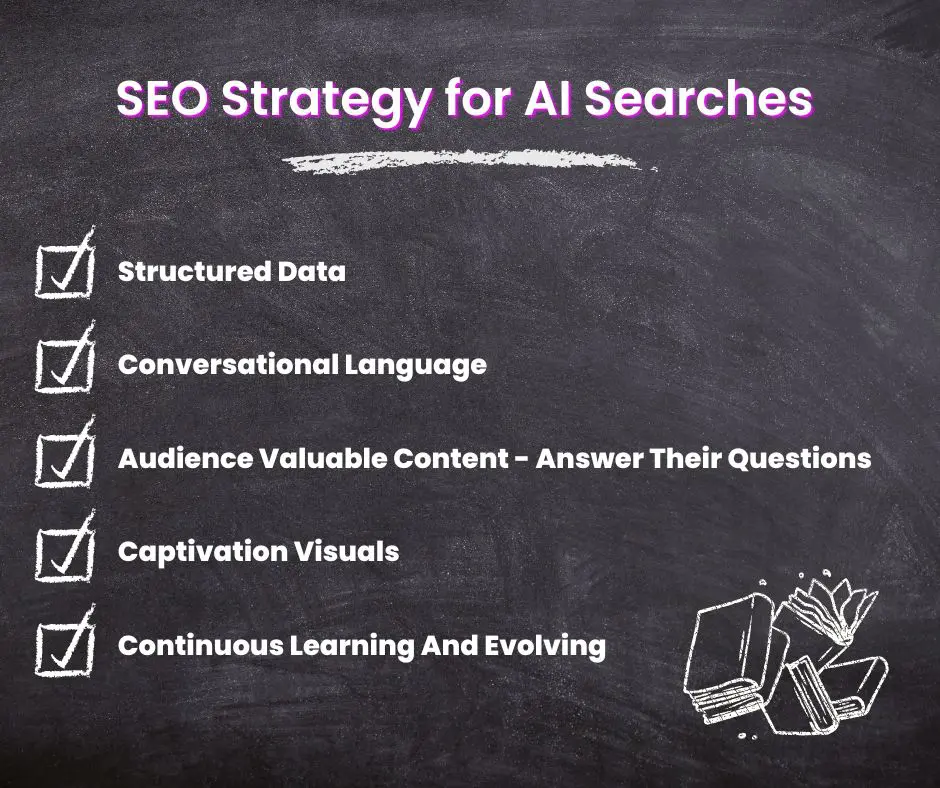In an era where artificial intelligence (AI) is reshaping the digital ecosystem, businesses must learn to adapt to its impact on Search Engine Optimization (SEO). Today, AI-driven search engines prioritize user-focused, value-rich content over merely keyword-filled text, marking a major shift in the SEO landscape. While this evolution challenges traditional SEO approaches, it offers businesses an opportunity to refine their strategies and effectively engage with their audience.

Understanding AI’s Role in SEO
AI has transformed SEO by personalizing search results. AI algorithms analyze factors like a user’s search history, location, and behavior to provide custom-tailored results. This emphasis on personalization requires SEO strategies to focus on creating content that resonates with specific audience segments.
The Age of Personalized Experiences
The modern SEO landscape revolves around personalized experiences. AI chatbots, capable of providing conversational responses to search queries, play a crucial role in this personalization.
Businesses can respond to this personalization trend by focusing their SEO strategy on high-quality, audience-specific content. This approach ensures that your content remains relevant and engaging in the rapidly evolving SEO landscape.
Appreciating AI’s Role in SEO: The Positives and the Challenges
AI’s impact on SEO isn’t exclusively positive; it also presents certain challenges. One of the key concerns is the potential loss of control over search rankings and referral traffic, especially with the emergence of AI-powered search engines like Bing’s new offering and Google’s Bard.
Additionally, with large publishers producing AI-generated content at scale, there is increased competition for rankings. Moreover, AI’s potential misinterpretation of content has led to issues such as inaccuracies and irrelevant information.
But do not fret…
The Potential Upside for Smaller Sites
Interestingly, the shift toward more conversational and contextual search might benefit smaller, niche websites. If AI can accurately summarize and present their in-depth, authoritative content, these sites might gain increased visibility, even outperforming larger, more generalized websites. However, this will necessitate a shift in strategy towards optimizing for semantic search rather than focusing on exact keyword matches.
While AI is shaking things up in the world of SEO, our mission stays steady: we aim to give our audience valuable, relevant content. To keep up with these changes and ensure our content stays at the top, we need to tweak our strategy a bit. Here are some top-notch ways to adapt your content for this new era, where AI takes the steering wheel of SEO.

The Importance of optimizing for Voice Search
As AI-powered voice assistants like Siri and Alexa become commonplace, optimizing for voice search has emerged as a vital SEO strategy. To stay relevant, it’s necessary to optimize content for voice search. This involves using long-tail keywords and natural language that aligns with the conversational tone of voice queries.
Harnessing the Power of Structured Data
Structured data aids AI algorithms in understanding the content and context of your webpage. This enables AI systems to index your content more effectively, presenting it as a more fitting response to user queries.
Emphasizing Technical SEO
A website with strong technical SEO is more likely to rank well in an AI-influenced SEO landscape. Key aspects of technical SEO include fast loading times, mobile-friendliness, secure protocols (HTTPS), and clean, crawlable code. These factors contribute to a superior user experience, a factor that AI algorithms consider heavily when ranking sites.
Capitalizing on Video and Visual Content
Advancements in AI have enabled search engines to comprehend visual content better. Therefore, utilizing video, images or infographics and optimizing all visuals and videos on your site, including the use of accurate tags, descriptions, and alt text, can provide a significant SEO boost.
Long-Term Strategy and Continuous Learning
SEO isn’t a sprint, but a marathon. Quick-fix SEO tactics that attempt to trick AI will be short-lived and potentially penalized. Instead, focus on a robust, sustainable SEO strategy capable of weathering algorithm changes.
Lastly, in an ever-evolving industry like SEO, continuous learning is crucial. Stay updated with the latest trends and industry changes to ensure your SEO strategy remains ahead of the curve.
By embracing these strategies, businesses can adapt to the AI-shaped SEO landscape and ensure their content effectively reaches their target audience. As AI continues to revolutionize SEO, the central goal remains unaltered: to offer high-quality, relevant content that provides value to users. Staying aligned with this objective will enable businesses to flourish in this exciting, AI-dominated era of SEO.





